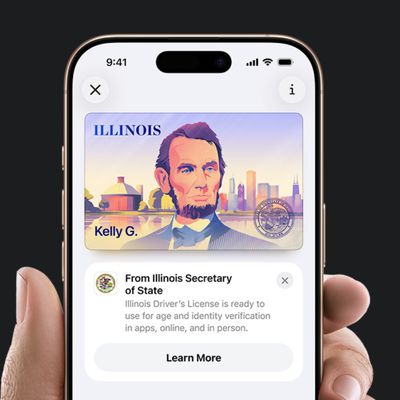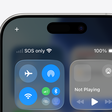Facebook today ended its Creative Labs project, which was designed to allow its engineers to come up with unique and innovative smartphone and tablet apps. With the shuttering of Creative Labs, several of the apps that came out of the program are being shut down and removed from the App Store.
Slingshot, Rooms, and Riff, all apps that were released across 2014 and 2015, are no longer available in the App Store. Slingshot, announced in June of 2014, was an ephemeral messaging app modeled after Snapchat, but with a slight twist. Before viewing a message or a photo, the recipient was required to send a message back.

Rooms, launched in October of 2014, allowed users to create anonymous invite-only chat rooms based around specific themes, while Riff, announced in April 2015, was designed to let users create collaborative video mashups with their friends.
Despite being backed by Facebook, none of the now-defunct apps managed to catch on with users and thus received a limited number of updates from the company. Riff, for example, was never updated since it was released in April, and Slingshot and Rooms were last updated in March and July of 2015, respectively.
A Facebook spokesperson confirmed the end of Creative Labs in a statement to CNET, noting none of the apps had been updated for some time and many of the features have been added into the company's primary apps. "Since their launches, we've incorporated elements of Slingshot, Riff and Rooms into the Facebook for iOS and Android apps."
While none of the apps are available for download, Slingshot continues to be functional for existing users for the time being, while Rooms will be available until it's closed on December 23.
Paper, the first and most successful app to come out of Facebook's Creative Labs effort, remains available in the App Store.





















Top Rated Comments
Facebook started out as a hyperfocused product for only Harvard students. It was perfectly tailored for them with their class schedules, ways with talking with classmates and teachers, seeing things happening on campus, etc. It was an indispensable tool for many at Harvard.
After a year of cementing itself at Harvard, they spread out to other Ivy schools. They lost some of the special, just for Harvard features, but they kept enough that most students from Harvard stayed on and told friends at other Ivy schools to join.
Then they spread to other colleges.
Then they spread to high schools and work places.
Then they threw open the doors and let everyone 13 and older join.
This is a classic class case study for how successful products are made. You start with a hyperfocused group of users where everything is perfectly tailored for them, and then gradually increase pace as you broaden your scope.
Slingshot, and most of their other products, flopped because they didn't have anyone they were targeting. They weren't tailor made to solve any particular problems, so nobody picked them up. Same with Google Plus. Same with so many other failed products.
Rooms targeted textPlus and some other similar apps.
Riff targeted Vine.
Google Plus targeted Facebook.
See a trend here? The problem they solved is their owners missed the boat on some social app and felt they needed to catch up.
Including you.
Microsoft made Office and the Xbox
Google made Maps, Gmail, Android, Now, Google Docs, ...